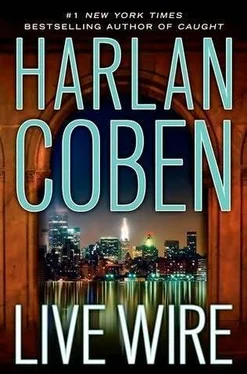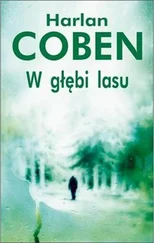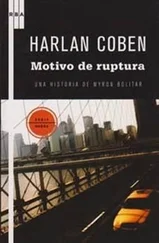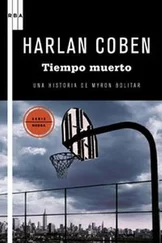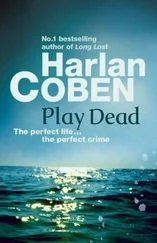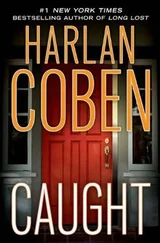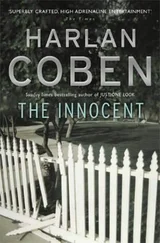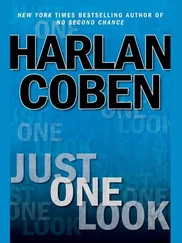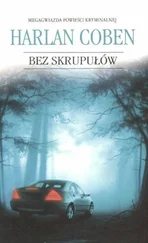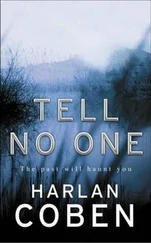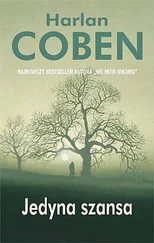His voice faded away. He pulled a napkin from the dispenser, started to go for his eyes, decided against it. He stared down at the table.
“So anyway, Alista took her best friend to the concert. They were supposed to go back to the friend’s house afterward. For a sleepover. But they didn’t. You know the rest.”
“I’m sorry.”
Karl Snow shook his head. “A long time ago.”
“And you don’t blame Gabriel Wire?”
“Blame?” He stopped and thought about that. “The truth is, I didn’t supervise Alista enough after her mother died. So part of it, I mean, when I really look at it closely, the roadie who spotted Alista in the crowd? He was a stranger. The security guy who let her backstage? He was a stranger. Gabriel Wire-he was a stranger too. I was her father-and I didn’t look out for her. Why should I have expected them to?”
Karl Snow blinked and flicked a look to the right.
“And that’s what you told Suzze?”
“I told her there was no proof that Gabriel Wire did anything wrong that night-at least, nothing the police could prove. They made that very clear to me. Yes, Alista had been in Wire’s hotel suite. Yes, she did fall from his balcony-and yes, she did fall thirtyt-wo floors. But to get from A to B, to get from those facts to indicting a powerful celebrity, not to mention securing a conviction…” He shrugged. “I had another daughter to worry about. I had no money. Do you know how hard it is to raise a handicapped child? How expensive? And SnowCap is a small chain now. How do you think I got the initial seed money?”
Myron was trying hard to understand, but his voice had more edge than he’d wanted. “From your daughter’s killer?”
“You don’t get it. Alista was dead. Dead is dead. There was nothing I could do for her anymore.”
“But there was something you could still do for Kimberly.”
“Yes. But it really isn’t as cold as that. Suppose I didn’t take the money. Now Wire gets away with it-and Kimberly is still in a bad way. This way, at the very least, Kimberly would be taken care of.”
“No offense, but that does sound awfully cold.”
“I suppose to an outsider it does, doesn’t it? I’m a father. And a father really has only one job. Protect your child. That’s it. And once I failed at that, once I let my daughter go off to that concert and I didn’t check up on her… Nothing can ever make up for that.” He stopped, wiped a tear from his eye. “Anyway, you wanted to know what Suzze wanted. She wanted to know if I thought Gabriel Wire killed Alista.”
“Did she say why she wanted to know? I mean, after all these years?”
“No.” He blinked, looked away.
“What?”
“Nothing. I should have told her to leave it alone. Alista tangled with Gabriel Wire-and look what happened.”
“Are you saying-?”
“I’m not saying anything. The news said she overdosed on heroin. She seemed distraught when she left, so I guess I’m not all that surprised.”
Behind him one of Lauren’s friends started crying-something about someone getting the wrong goodie bag. Karl Snow heard the commotion. He hurried over to the girls, all someone’s daughters, girls who would grow up quickly and have crushes on rock stars. But for now here they were, at a little girl’s birthday party, simply wanting ice cream and the right goodie bag.
Win knew how to get an immediate meeting with Herman Ache.
Windsor Horne Lockwood III had, like Windsor Horne Lockwood II and Windsor Horne Lockwood, been born with a silver golf tee in his mouth. His family had been original members of Merion Golf Club in Ardmore, outside Philadelphia. Win was also a member of Pine Valley, routinely ranked as the number one course in the world (this despite the fact that the course was located near a cheesy water park in southern New Jersey), and for those times he wanted to play a great course near New York City, Win had joined Ridgewood Golf Club, an A. W. Tillinghast-designed twenty-seven-hole paradise that rivaled the best parkland courses in the world.
Herman Ache-the “former” mobster-loved golf more than he loved his children. That might be hyperbole, but based on Win’s recent visit to a federal penitentiary, Herman Ache certainly loved golf more than he loved his brother Frank. So Win called Herman’s office that morning and invited him to play a round at Ridgewood that very day. Without hesitation, Herman Ache said yes.
Herman Ache was too cagey not to realize that Win had an agenda, but he didn’t care. This was a chance to play Ridgewood-a rare opportunity for even the wealthiest and most powerful of mob bosses. He would parry and thrust and probably walk headfirst into a fed wiretap sting if it meant that he could tee off on one of Tillinghast’s most legendary courses.
“Thanks again for inviting me,” Herman said.
“My pleasure.”
They were on the first tee, known as One East. No cell phones were allowed on the course, but Win had spoken to Myron right before heading out and was thus filled in on Myron’s meeting with Karl Snow. Win was not sure what to make of it. He cleared his mind and stepped up to the ball. He let loose a breath and split the fairway in half with a two-hundred-ninety-yard drive.
Herman Ache, who had a swing uglier than a monkey’s armpit, was up next. He hooked it way left over the trees and nearly out to Route 17.
Herman frowned. He stared at the club, ready to blame. “You know something? I saw Tiger hit the same shot on this hole during the Barclay Open.”
“Yes,” Win said. “You and Tiger are practically interchangeable off a tee.”
Herman Ache smiled with aggressively capped teeth. Despite being in his late seventies, he wore a yellow Nike Dri-Fit golf shirt and, following a recent albeit ill-advised golf fashion trend, formfitting white pants flared at the cuff and held up by a thick black belt with a silver buckle the size of a hubcap.
Ache called for a Mulligan-basically a do-over and something Win never ever did when he was someone’s guest-and placed another ball on the tee. “Let me ask you something, Win.”
“Please do.”
“As you probably know, I’m an old man.”
Ache smiled again. He aimed for kindly grandfather but with the caps it came out more lemurlike. Herman Ache had the kind of tan that was more orange than brown and luxuriously distinguished gray hair, the kind only money could buy-in short, he wore a top-drawer toupee. His face was totally wrinkle-and-movement free. Botox. Lots of it. His skin was too oily, too shiny, so that he looked a bit like something Madame Tussaud created on an off day. The neck gave him away. It was scrawny and baggy, hanging loosely like an old man’s scrotum.
“I’m aware,” Win said.
“And as you probably know, I operate and own a tremendous and varied portfolio of legal enterprises.”
If a man feels the need to tell you that his enterprises are “legal,” well, they most definitely are not.
Win made a noise of noncommitment.
“I’m wondering if you’d consider sponsoring me for membership here,” Herman Ache said. “With your connections and name, I mean, if you’d be the one doing the sponsoring, I think it might go a long way to acceptance.”
Win tried very hard not to blanch. He also managed not to put his hand to his heart and stumble backward, though it was not easy. “We can discuss,” Win said.
Herman stood behind the ball, narrowed his eyes, and studied the fairway as though he were searching for the New World. He strolled up to his ball, stood next to it, and took four painfully slow practice swings. The caddies exchanged a glance. Herman looked out at the fairway again. If this were a movie, you’d now start seeing the hands of the clock fly around, days on a calendar blowing in the wind, leaves browning, and snow falling and then the sun coming up and everything turning green.
Читать дальше
